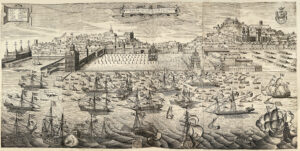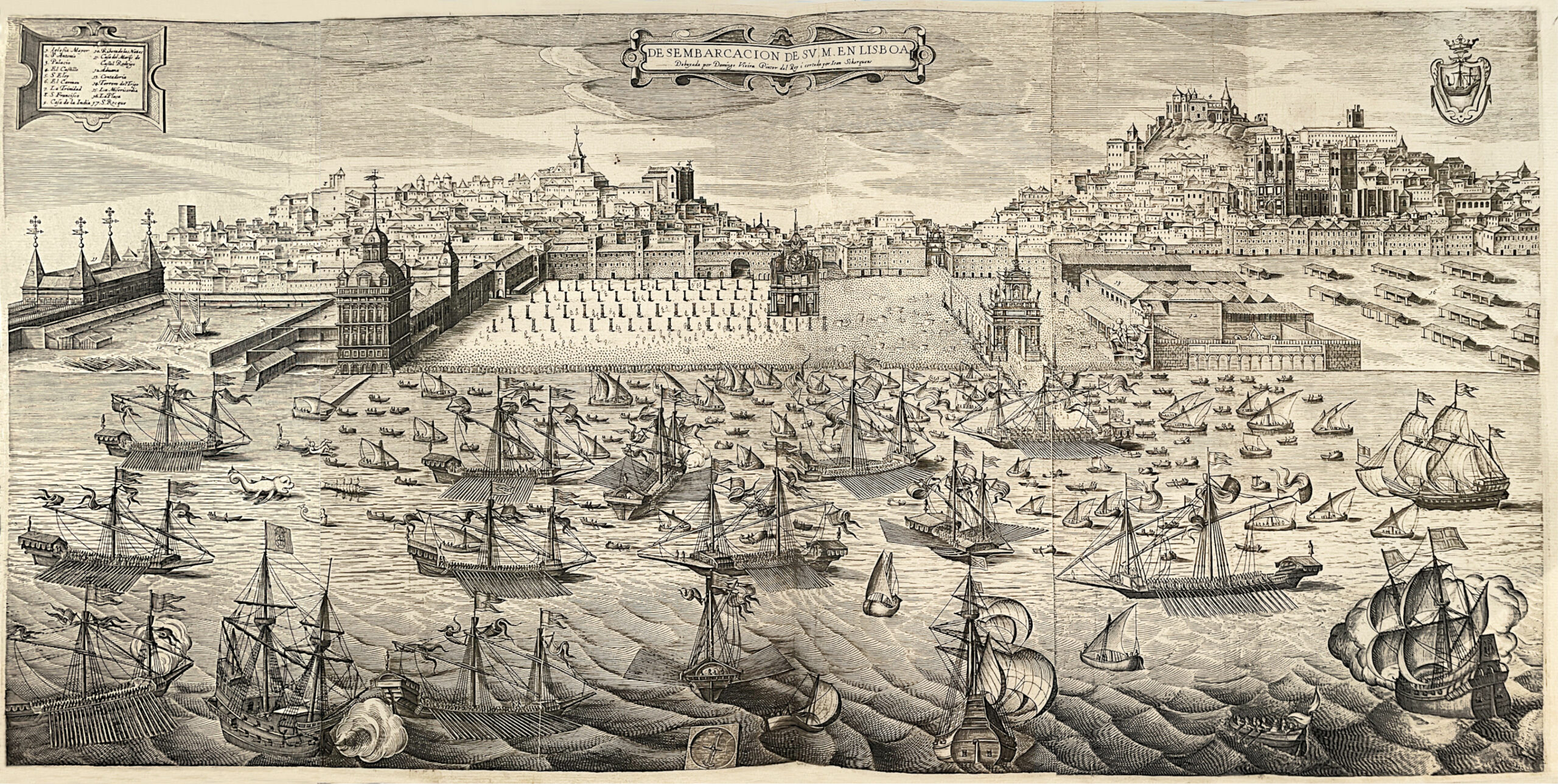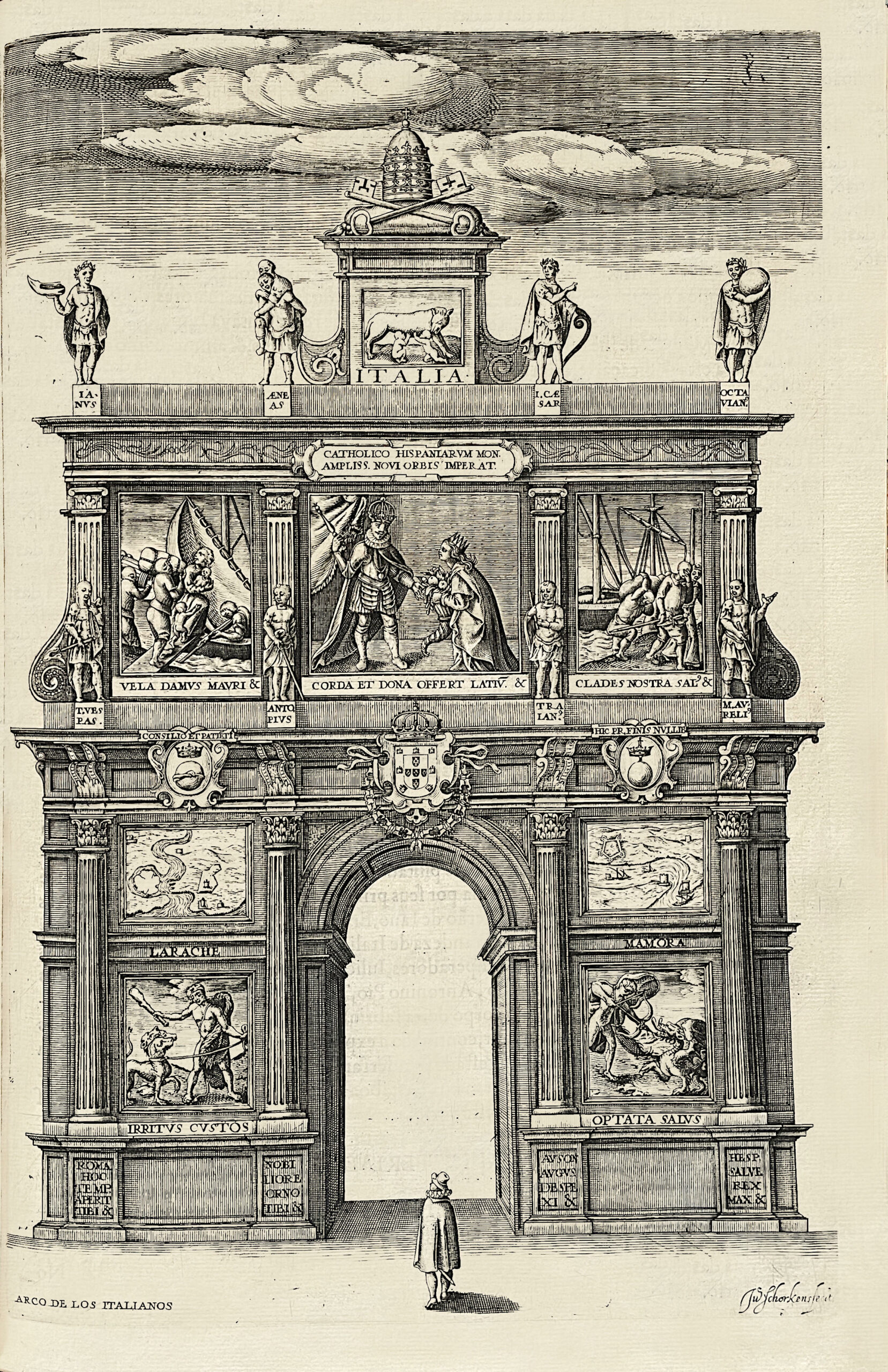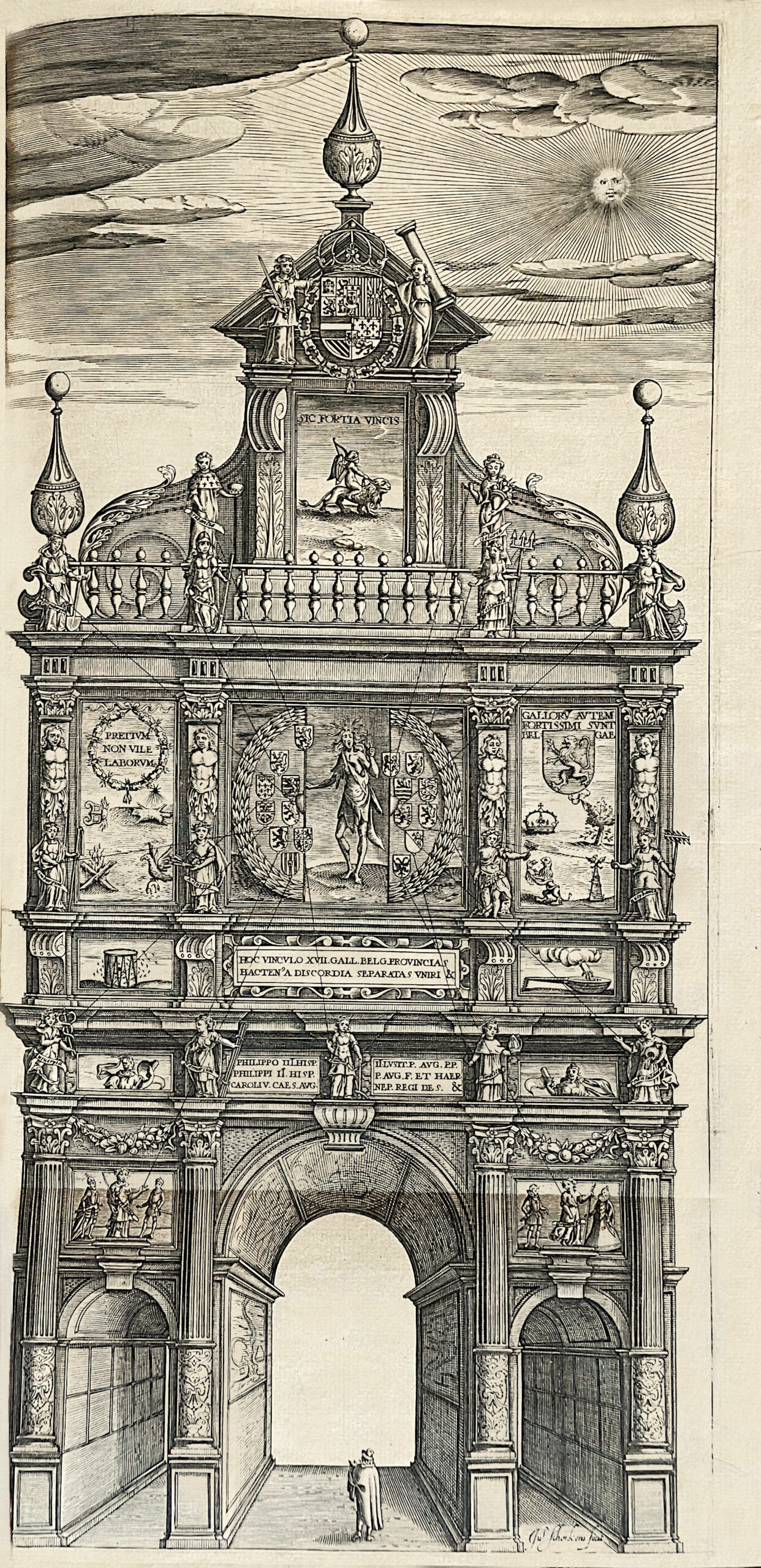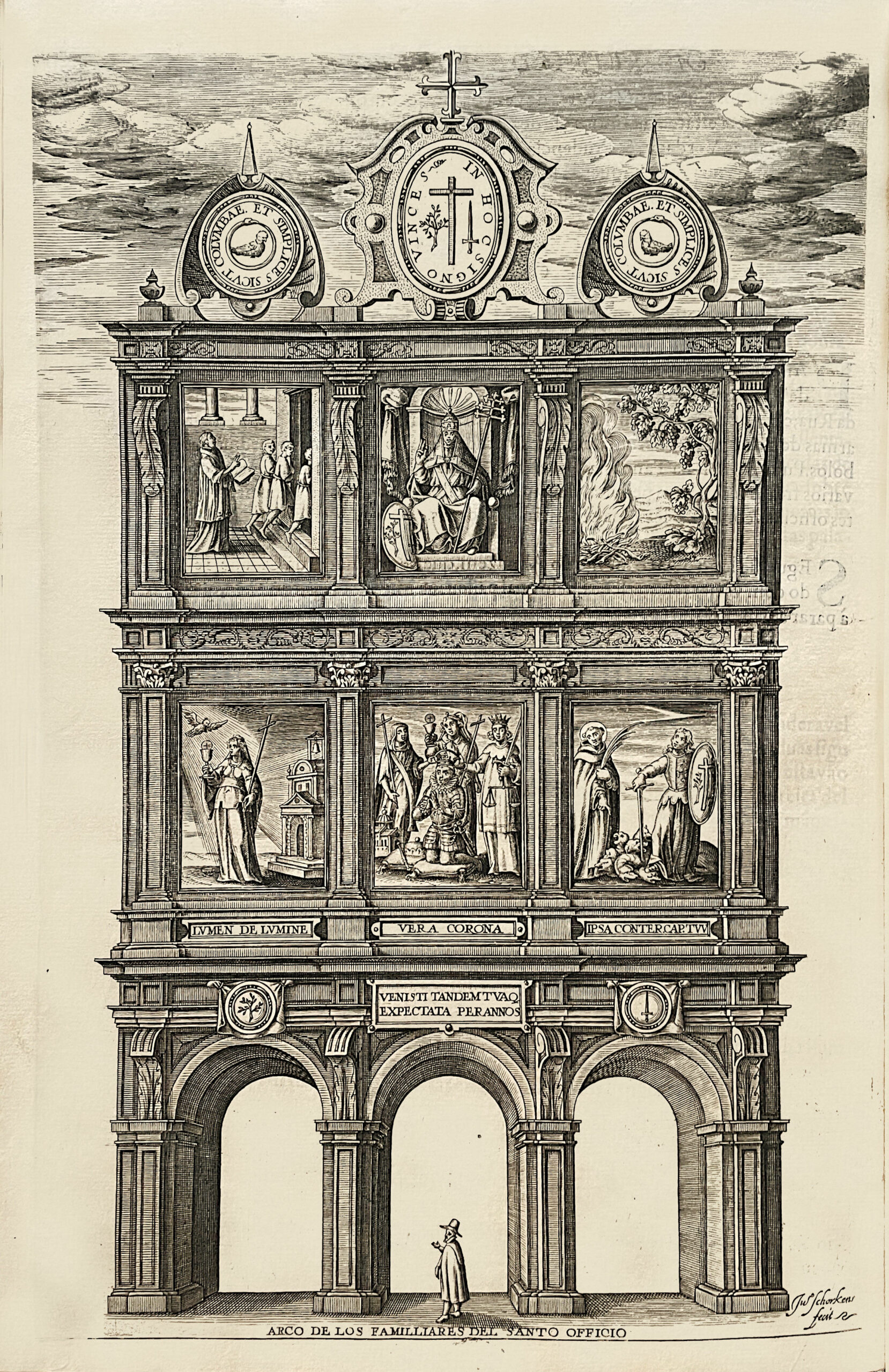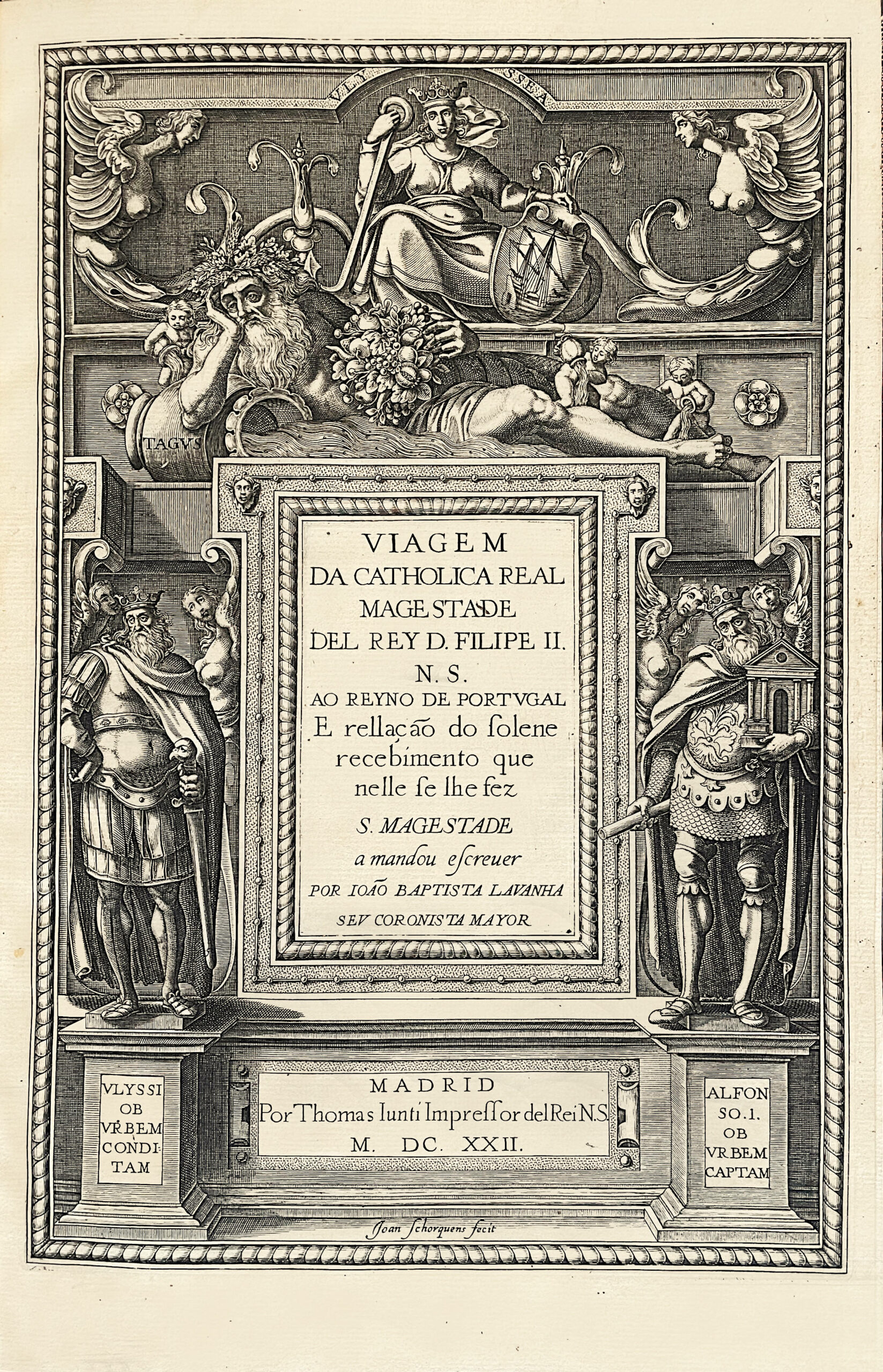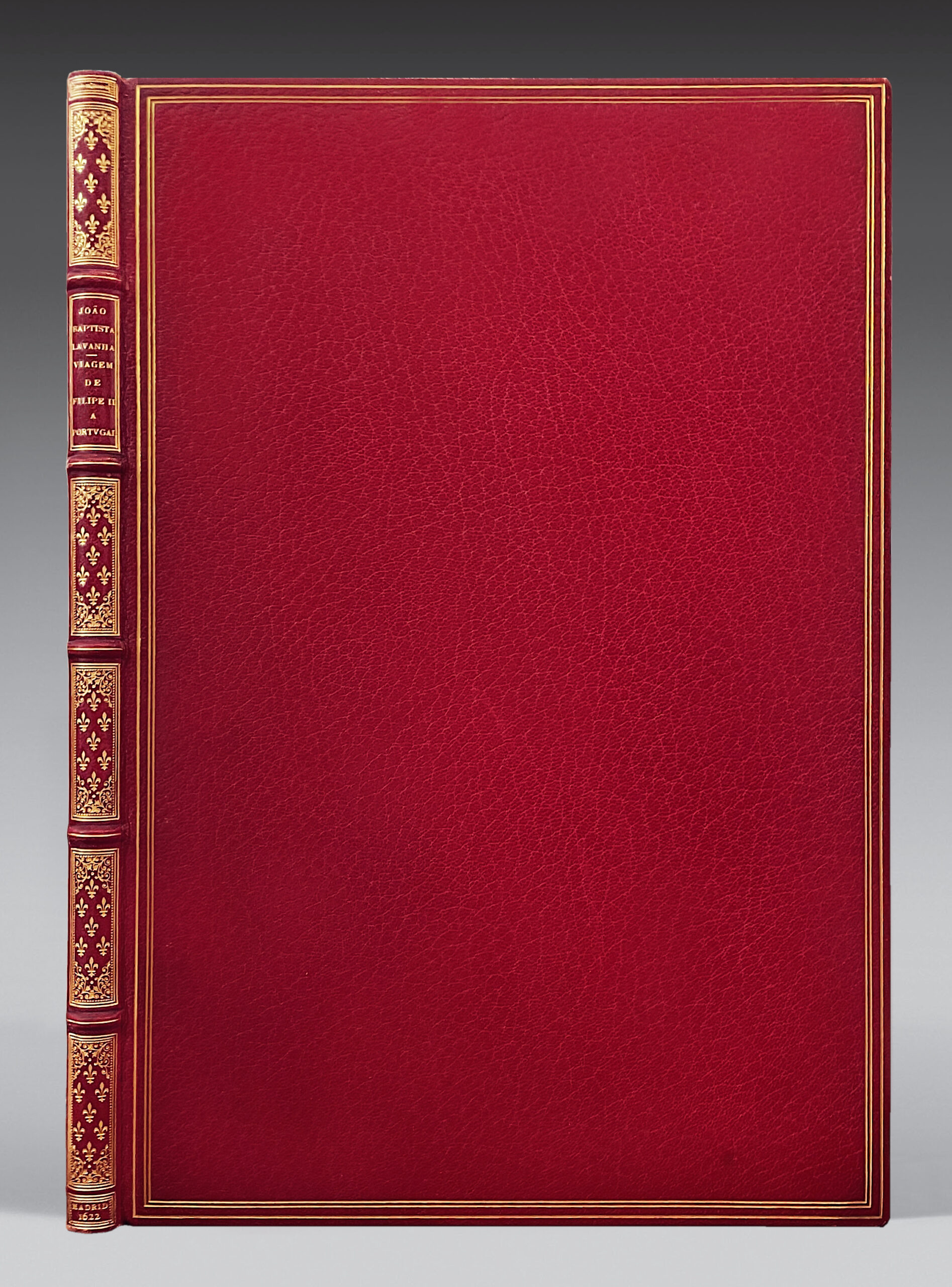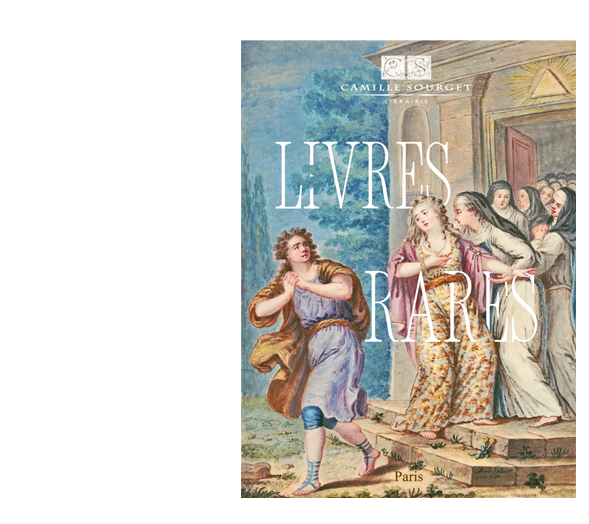Madrid, Thomas Junti, 1622 (end of 1621).
Folio [329 x 222 mm] of (2) bl. ll., 1 frontispiece, (2) ll., 78 ll. of text, 15 engraved plates including 3 folding, small hole on l. 25. Full red morocco, triple gilt fillet around the covers, spine ribbed and decorated with fleurs de lys, inner border, gilt edges. Lortic fils.
Extremely rare first edition, missing from Brunet, Ruggieri, Chadenat, Deschamps etc.
Berlin 3090; Hofer, Baroque Book Illustration, 87.
A very rare festival book describing the celebrations surrounding the entry of Philip III of Spain (1578-621) to Lisbon in 1619. Philip, who ruled Portugal as Philip II from 1598 to his death in 1621, visited on his own initiative and against the view of both the Council of State and that of Castile. He was accompanied by the Prince of Asturias (future Philip IV).
The king’s visit had been postponed several times, but when it finally took place, it was celebrated with the grandeur due a monarch whose rule extended over five continents. João Baptista Lavanha, the Cronista-mayor, or the king’s chief chronicler, followed the royal progress from Madrid to Lisbon. In vivid reports of the ceremonies prepared in each town on the journey, Lavanha interpreted the ephemeral constructions erected in the king’s honor, explaining mythological references and translating Latin inscriptions.Vinet describes it without having seen it: “We have not seen the work…” he mentions.
This book by João Baptista Lavanha focuses on the journey of Philip II, when Portugal was attached to Spain.
It was in 1580 that Portugal was absorbed by the Spanish monarchy of Philip II. This domination lasted sixty years, under Philip II and under his immediate successors (from 1580 to 1640). The Portuguese colonies in the East Indies had the same fate as the metropolis and, likewise, fell ipso facto, under the dependence of the Kings of the Austro-Castillan dynasty, whose empire thus extended both over the West Indies (America) and the East Indies (coasts of Malabar, Ormuz, etc.), across the Atlantic and into the Indian Ocean. Portuguese, however, reluctantly suffered Spanish domination.
Lavanha’s account was published in Madrid in 1622, both in Portuguese and Castilian editions.
Superb volume illustrated with a frontispiece title and 15 plates engraved by Juan Schorquens, a Dutch engraver and drawer, working in Madrid at the beginning of the 17th century (Ec. Hol.).
“He worked in Madrid from 1618 to 1630. He sometimes signed J. van Schorquens, fecit, in Madrid. He mostly worked for bookshops and he is said to have produced superb frontispieces”.
The book opens with a large engraving showing a bird’s-eye view of the Lisbon waterfront on 29 June 1619, when Philip III arrived to the Terreiro do Paço, the main square of the city. This engraving is missing from many copies.
The full-page etchings reproduce 13 of the 20 triumphal arches along the king’s progress; these were apparently drawn by the Portuguese court painter Domingos Vieira Serrão and then etched by Jan Schorkens, Flemish printmaker living in Madrid.
Of varying size and complexity, the arches were erected by the Inquisition, by various guilds (including merchants, silversmiths, painters, tailors, and lapidaries), and by the English, Flemish, German, and Italians communities in Lisbon: America. 17 Provinces belges. Arco de Los Ingleses ; Arco de Los Italianos ; Arco de Los Alemanes, etc…
In the 1619 entry, some arches expressed the desire of the city of Lisbon to become the capital of the empire; in others, the Portuguese reminded the king of their old and often-ignored privileges.
Very beautiful copy preserved in its elegant binding in red morocco signed by Lortic fils.
